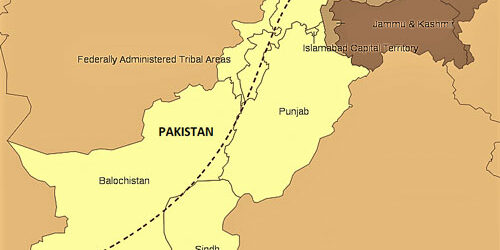THE China-Pakistan Economic Corridor (CPEC) has now brightened the chances of regional connectivity especially with Central Asian States. It has become an engine of growth.
It has become an essential fuel of energy generation in which hydropower has outperformed other sources of energy.https://googleads.g.doubleclick.net/pagead/ads?client=ca-pub-3324216479772415&output=html&h=60&slotname=1758957544&adk=1226786057&adf=2643393648&pi=t.ma~as.1758957544&w=468&lmt=1622656044&psa=1&format=468×60&url=https%3A%2F%2Fpakobserver.net%2Fcpec-corridor-of-knowledge-by-zulkafil-h-khan%2F&flash=0&wgl=1&uach=WyJXaW5kb3dzIiwiNi4xIiwieDg2IiwiIiwiOTEuMC40NDcyLjc3IixbXV0.&dt=1622656818718&bpp=13&bdt=6148&idt=1444&shv=r20210525&cbv=%2Fr20110914&ptt=9&saldr=aa&abxe=1&cookie=ID%3D2deb3ce0df582199-22c8ffa23aa70026%3AT%3D1617042922%3ART%3D1617042922%3AS%3DALNI_Mbwd2vPoV9H2OpRAYvgq0SostNkLw&prev_fmts=728×90%2C0x0&nras=1&correlator=1157557665382&frm=20&pv=1&ga_vid=367642796.1617042914&ga_sid=1622656820&ga_hid=673744508&ga_fc=0&u_tz=300&u_his=1&u_java=0&u_h=800&u_w=1280&u_ah=756&u_aw=1280&u_cd=24&u_nplug=3&u_nmime=4&adx=183&ady=1262&biw=1264&bih=685&scr_x=0&scr_y=0&eid=42530671%2C31060975&oid=3&pvsid=3396830579704454&pem=349&eae=0&fc=896&brdim=0%2C0%2C0%2C0%2C1280%2C0%2C1280%2C756%2C1280%2C685&vis=1&rsz=%7C%7CoeEbr%7C&abl=CS&pfx=0&fu=0&bc=31&ifi=2&uci=a!2&btvi=1&fsb=1&xpc=slsPI6jqhL&p=https%3A//pakobserver.net&dtd=1475
It has become an instrument for massive industrialization. Last but not the least, it has accelerated the pace of industrialization in the country.
While inaugurating the China-Pakistan Economic Corridor, President Xi-Jinping, said: “Friendship between China and Pakistan is based on trust and mutual support and we have been devoted friends through both good and hard times.
To restrain the hegemonic and expansionist designs of India and Narendra Modi-led BJP Government, the need for this partnership has further intensified in the last few years in which Corridor of Knowledge may play a decisive role in the days to come.
The multibillion USD mega projects under CPEC are destined to usher in a new era of economic prosperity and peace in the region.
These mammoth projects in the energy sector, strengthening of physical and telecommunication networks, upgradation and strengthening of Gwadar port and establishment of Export Promotions Zones across Pakistan, are collectively called the “Destiny Changer” in the region.
The dividends of the first early harvest phase of CPEC have already created trickle-down effects to the masses in Pakistan.
The academic and research collaboration between China and Pakistan have witnessed impressive growth in the last few decades in the areas of graduate studies, joint collaborative research, research funding, exchange programs, short term placement of students and faculty, organizing conferences, seminars and workshops etc.
In this regard, the Centre for Global & Strategic Studies (CGSS) Islamabad has been following a holistic approach for the further strengthening of bilateral relations and especially formation of Corridor of Knowledge through conducting numerous research papers, qualitative articles about CPEC, BRI, foreign policy of China, socio-economic policies, bilateral relations, its concepts about befitting regionalism and friendly globalization, universal health policies, global humanitarian assistance and last but not the least, support to WHO and other international organizations for the betterment of humanity at large.
Moreover, it has been conducting interactive sessions with experts, seminars, round table interactive programs and international conferences/webinars on various topics of mutual interest.
Its online internship programs are creating difference and disseminating a message of hope, better future and showcasing of soft image projection of China and, of course, Pakistan.
It has been on the right path of forming a creditable “Corridor of Knowledge” which is essential for the rapid development of the CPCE, especially its phase-II.
It has signed numerous befitting MOUs with many famous universities of the Eurasia and Middle East to create bridges of trust, better understanding and, of course, further enhancing people-to-people diplomacy and cultural cooperation.
Regional Integration Centre, University of Punjab is another noble policy making institute/think-tank which has been striving hard to promote the soft image of Pakistan through educational, cultural and people-to-people diplomacy.
It grants scholarships especially for the students of Central Asian Countries and China to get enrolled and experience a qualitative education.
In this regard, a joint maiden program of the RIC & CGSS entitled “Contemporary Dynamics of Pakistan” has already been started from May 31, 2021 specifically for the global diplomatic community totally free of cost because CGSS & RIC matter friendship over money.
The two important projects have started, China Pakistan Joint Research Centre at Quaid-e-Azam University and Academic Collaboration under CPEC consortium Universities.
In the former mega project, three centres will be established with the main seat at QUA for earth Sciences, Labs for Cryosphere and Climate at Karakoram International University Gilgit and Marine Sciences Labs at Marine University Karachi.
The CGSS has direct access to many Chinese universities, prominent think tanks and organizations which may be used for the further strengthening of the Corridor of Knowledge in the days to come.
The objectives of the Corridor of Knowledge to establish collaboration amongst the CPEC Consortium Universities include study the geo-strategic and geo-economic dimensions of the Chinese Belt and Road initiative and CPEC to understand their long-term impact on Pakistan.
It is meant to develop mechanisms to fully exploit the opportunities arising out of China’s appetite for global talent, and facilitate absorption of their graduates by Pakistani economy. Thus the role of the CGSS & RIC is crucial and constant.
It supports higher education institutions (HEIs) in the development of human resources to implement the CPEC Long Term Plan.
It develops the capacity of Pakistani universities for providing policy inputs to the government on the challenges emerging in the wake of implementation of CPEC Long Term Plan.
Last but not least, it develops an understanding of Chinese history, culture and the governance system that has created the Chinese miracle, while drawing lessons for its own development.
The various components of corridor of knowledge may include, joint research on climate adaptation, sustainable mountain development, food Security, urban planning, water resource management, supply chain management, IT, entrepreneurship, medicinal plants, gemstones and mineral resource management etc.
It also includes talent cultivation and training, post-doctoral research, short-term trainings, dual degree programs between Chinese and Pakistani universities, conferences, seminars, workshops etc. In this regard, CGSS & RIC have comparative advantages over others which may be used.
On its part, the CGSS is currently conducting numerous bilateral or trilateral international conferences to showcase China’s soft image to focus on the challenges faced by the two countries, with special emphasis over CPEC and BRI.
The Pakistan Observer, a leading English daily newspaper, has been striving hard to project various aspects of China’s soft image by publishing unlimited articles, news, interviews and special editions on a regular basis.
It has been on the frontline to mitigate spillover repercussions of the western propaganda through qualitative articles.
It has now become a sign of intellectual resistance against Indian and Western propaganda, fake news and unfriendly lobbies.
Mind is the ultimate power in which the Corridor of Knowledge always plays a very important role. The future development of CPEC is heavily dependent on the Corridor of Knowledge.






